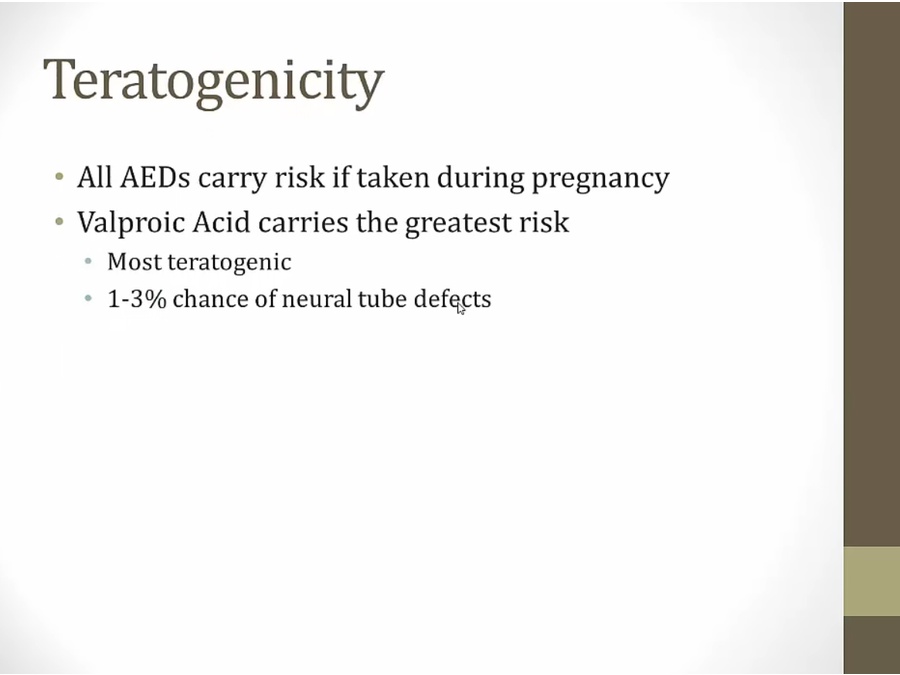37 Seizures
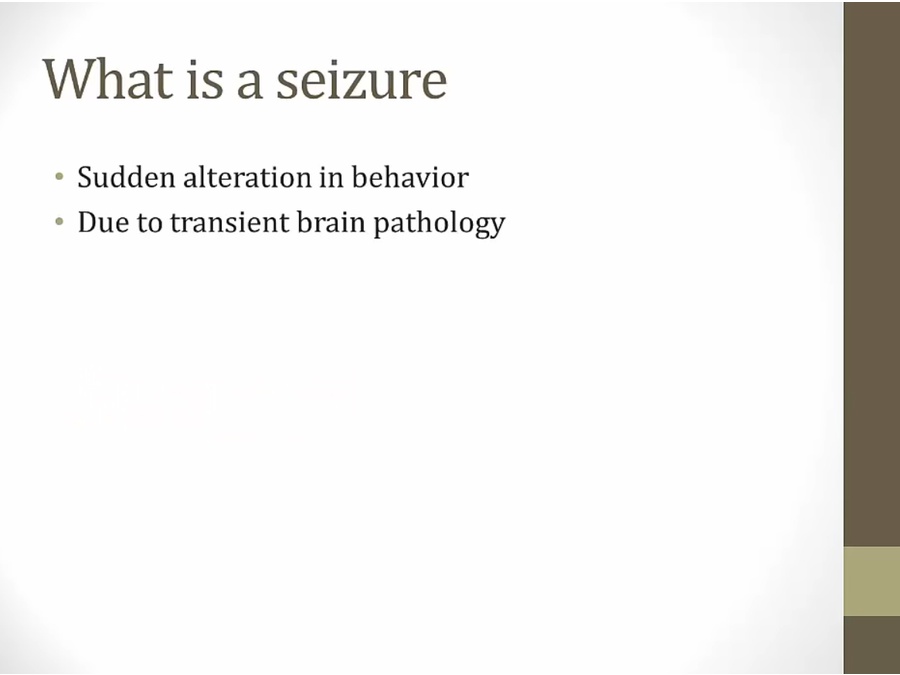
Workup
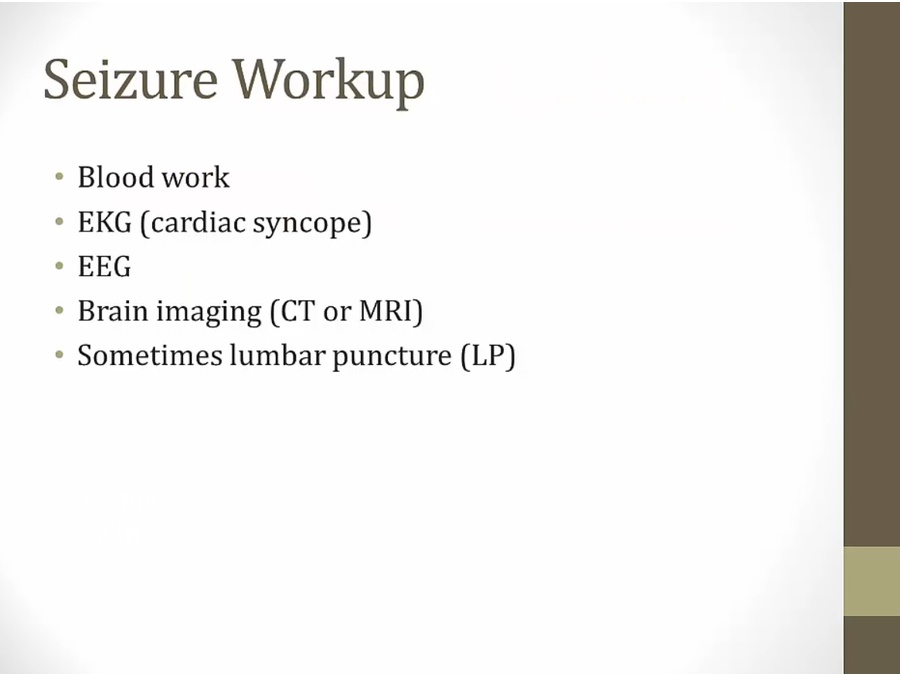
- blood work for electrolytes
- cardiac syncope can mimic seizure
- brain imaging for tumors/strokes
- LP: meningitis, encephalitis
EEG
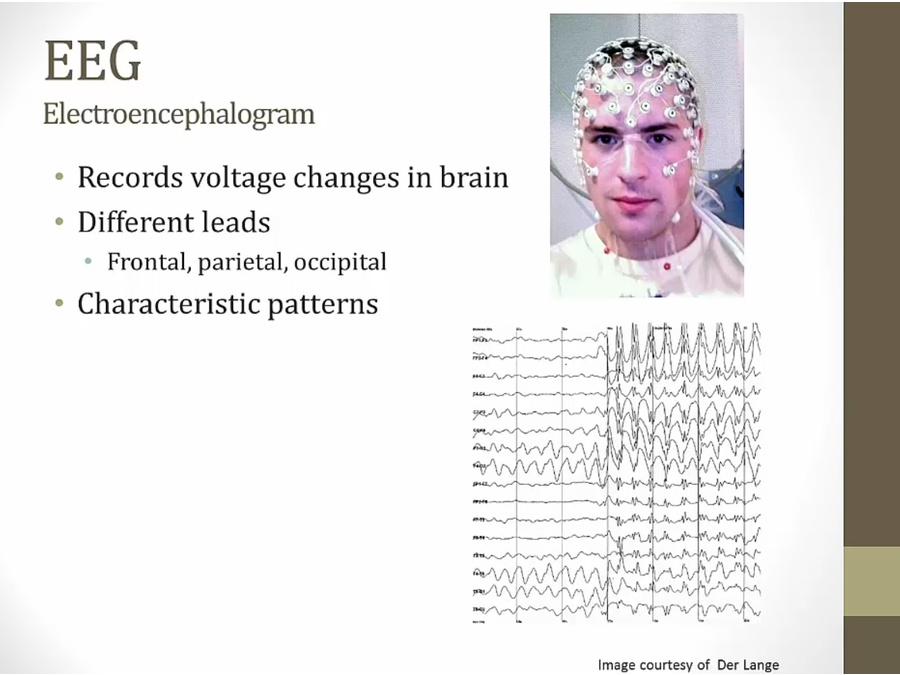
Types
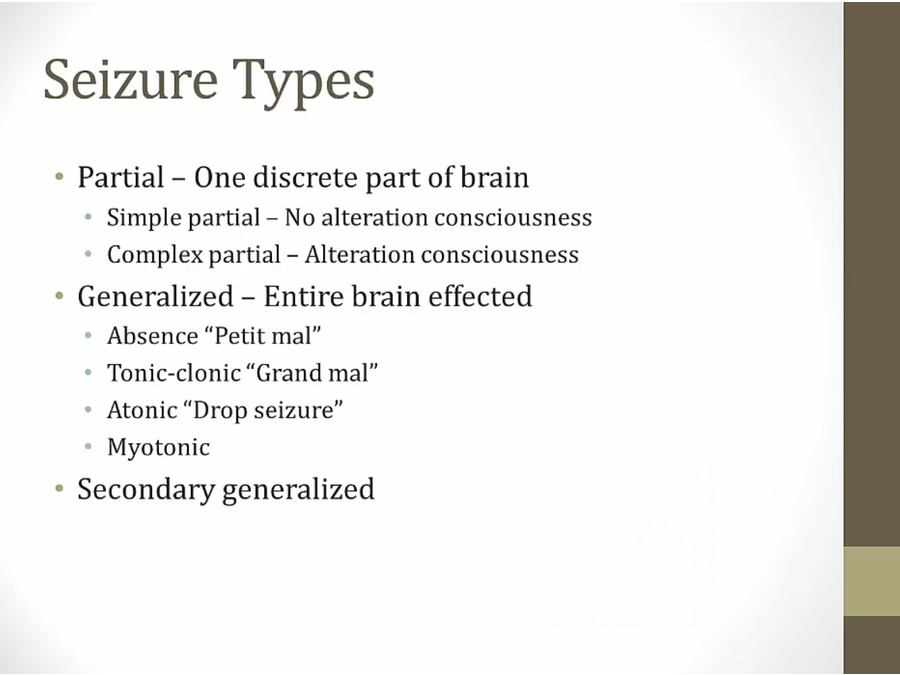
- simple: motor contraction, abnormal sensation
- complex: motor, sensory, consciousness altered
- petit mal: common in children, loss awareness of surroundings briefly
- grand mal: classic seizure, collapse, shake
- atonic: stiff once, then flaccid, collapse, mimic cardiac syncope
- myotonic/myoclonic: rhythmic jerking of a certain area, drop objects, twitches, not as severe as tonic clonic
- clonic tonic clonic: jerk once, multiple jerks fuse into clonic, then tonic, then clonic
- secondary generalized: starts out as partial then become generalized
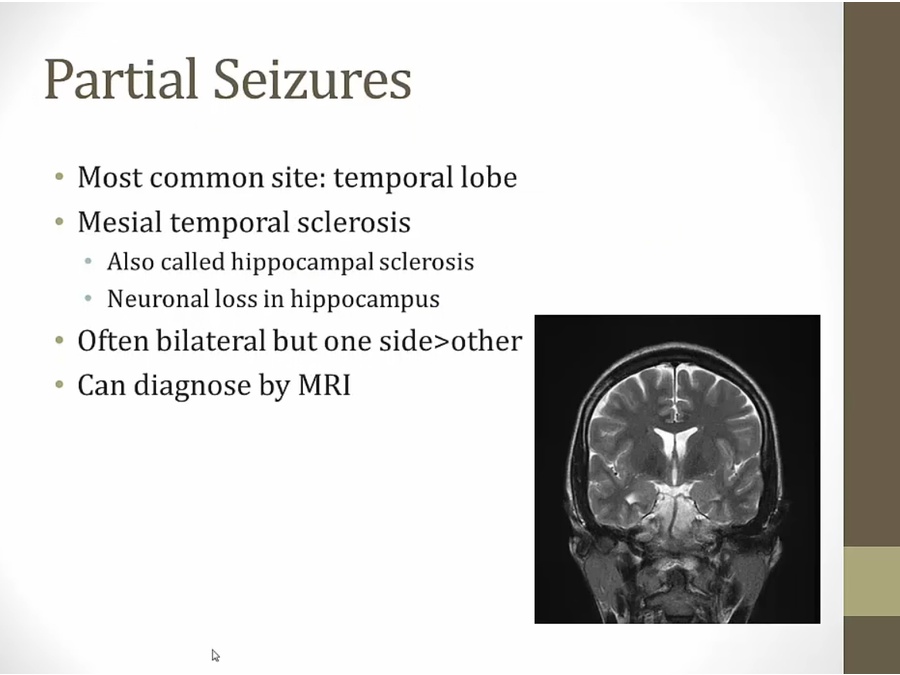
- hippocampal sclerosis: loss neuron in hippocampus
- MRI: white spot on right side of temporal hippocampus
Symptoms
.
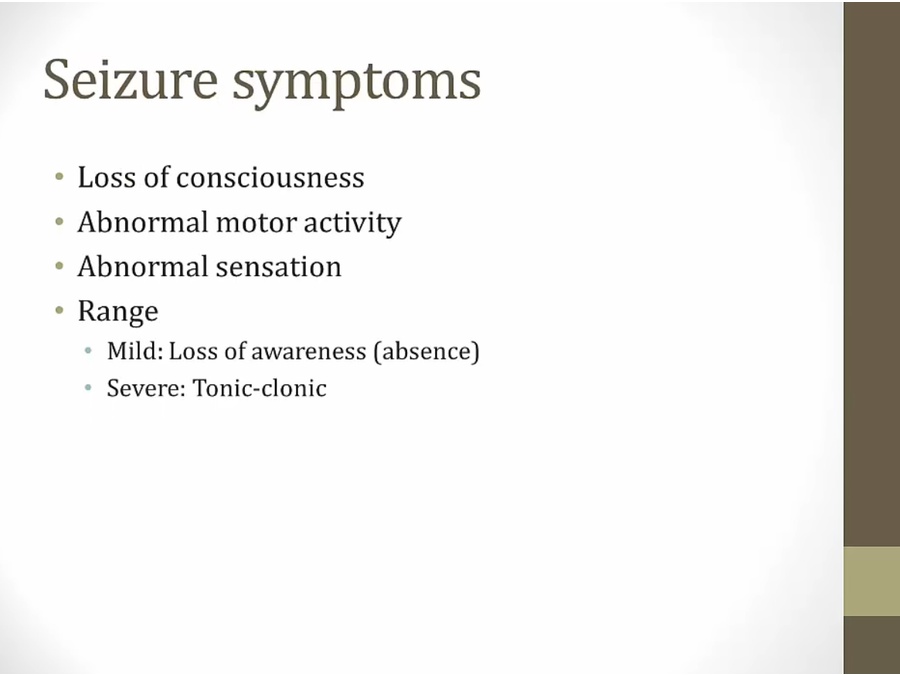
- muscles can contract, relax, spasm
- feel, see, smell things not there
- mild: loss of awareness for a few minutes, aka absence seizures
- severe: pt collapse and shakes
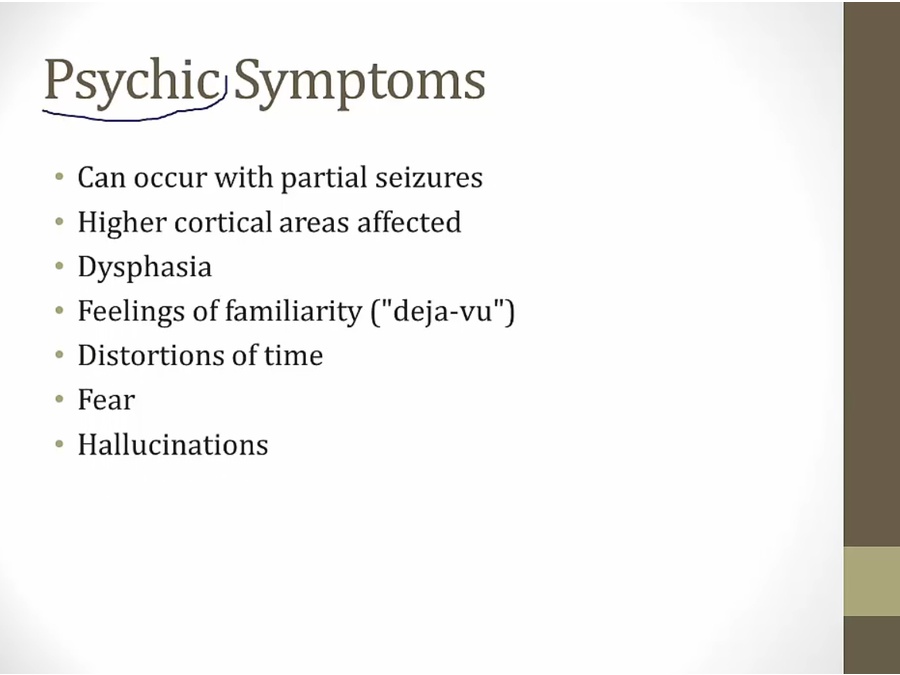
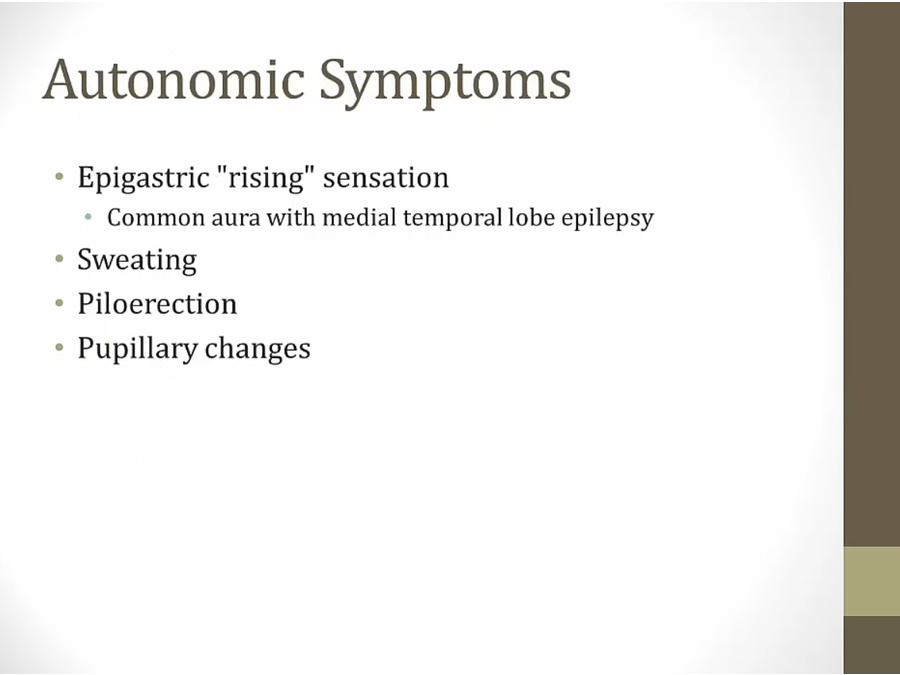
- classic: epigastric rising, precede temporal lobe epilepsy
- piloerection: skin standing on edge
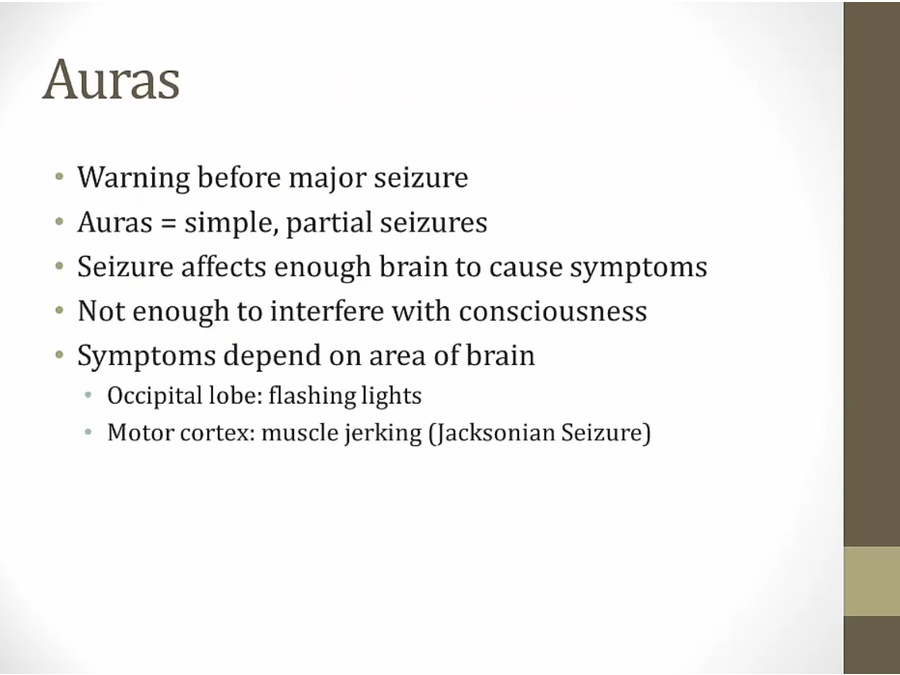
- in reality, simple, partial seizures
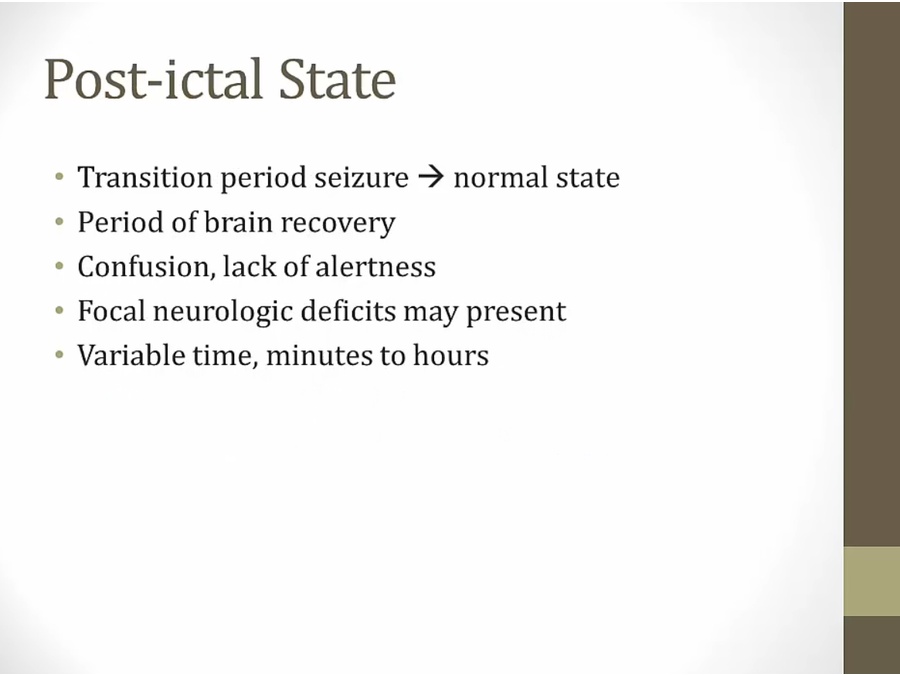
- especially after grand mal or tonic
- differentiate from cardiac syncope: faint from heart problem, become immediate aware after gain of consciousness
- seizure: period of confusion
Causes
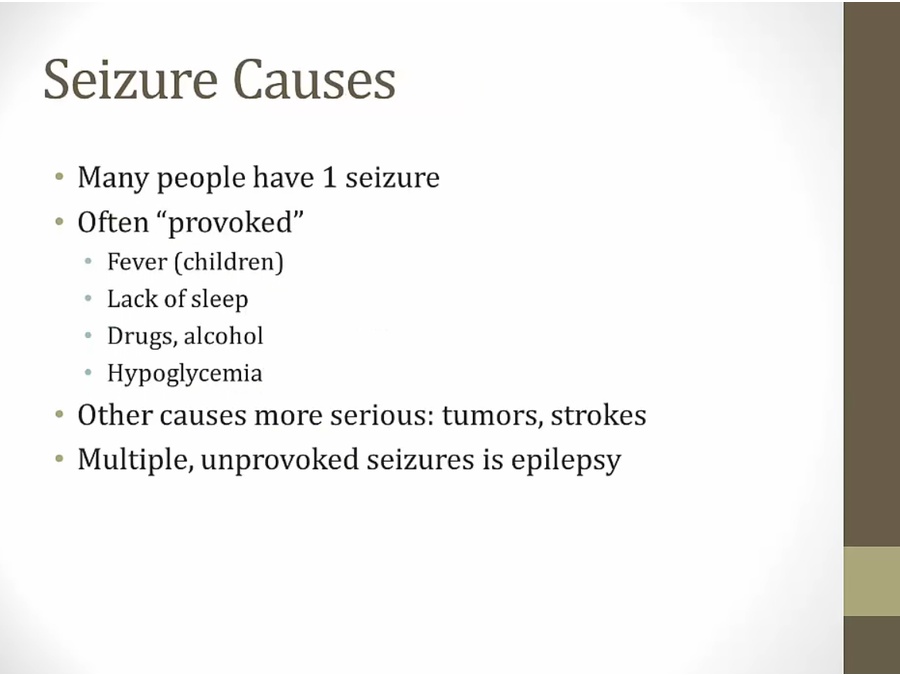
- most don't have chronic seizure disorders
- lack of sleep: can have single seizures
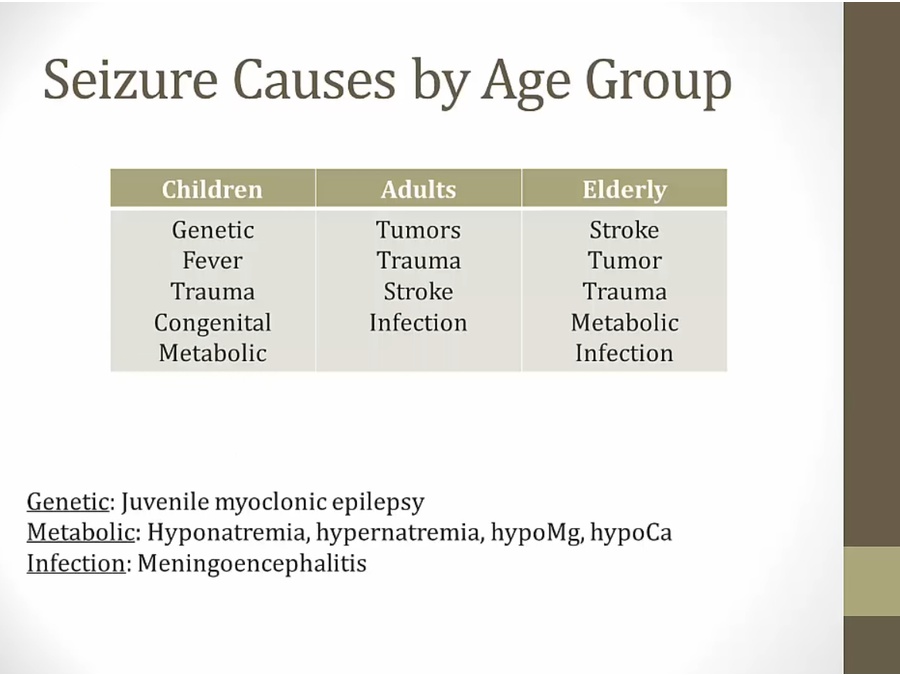
Juvenile Myoclonic Epilepsy
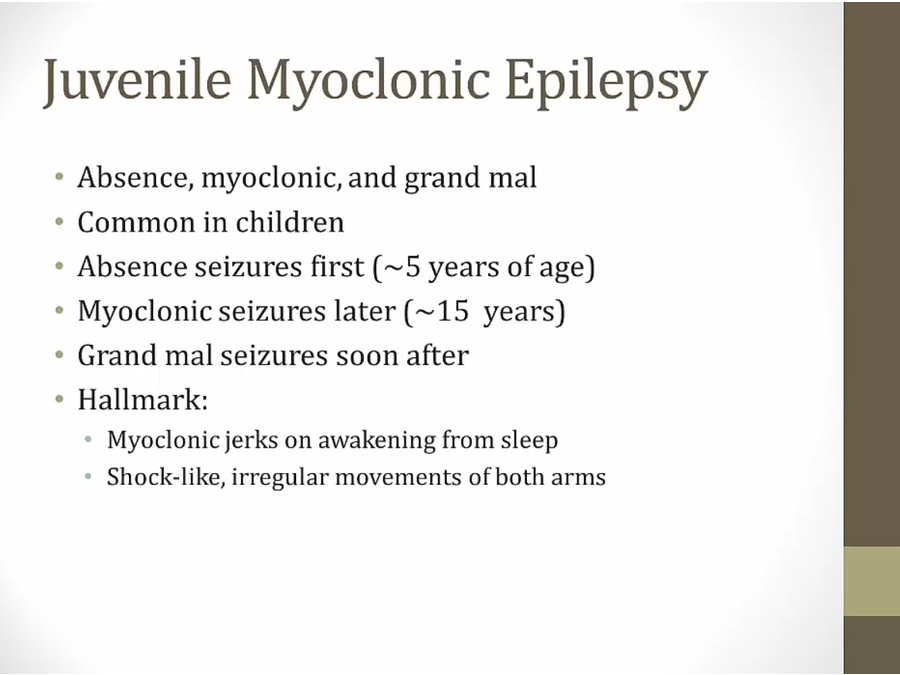
- wake up in morning, one of muscles jerking
Childhood Absence Epilepsy
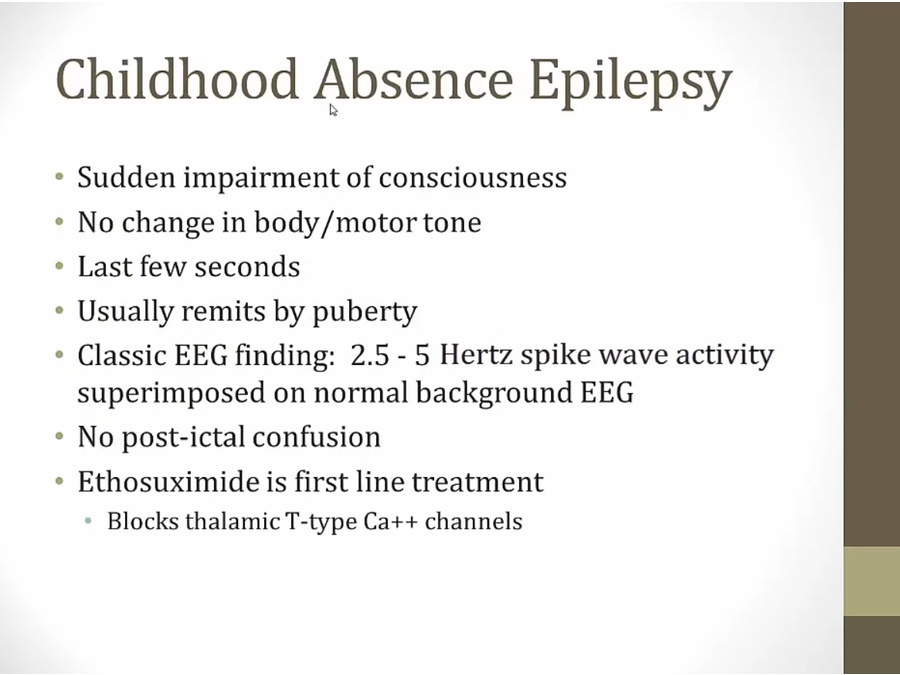
- stare into space for moments
- good prognosis
- classic presentation: child appear to not pay attention
- know EEG
Febrile
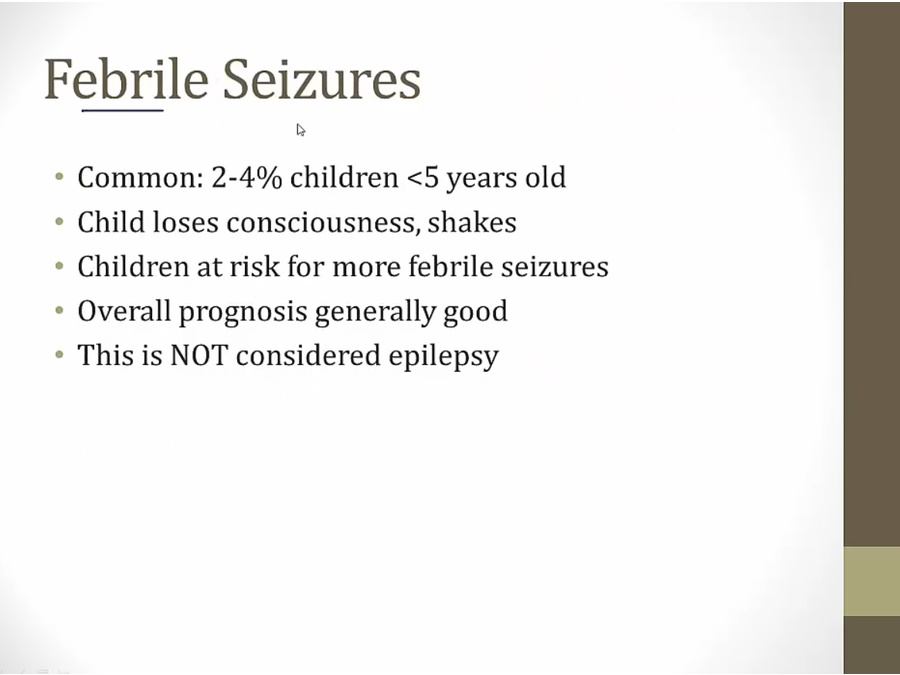
Eclampsia
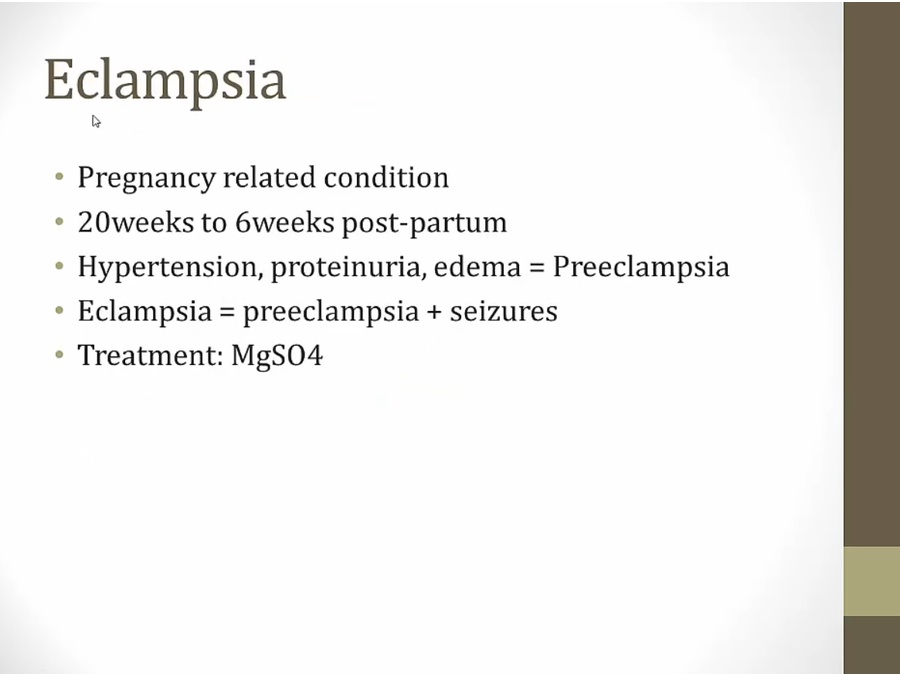
Treatment
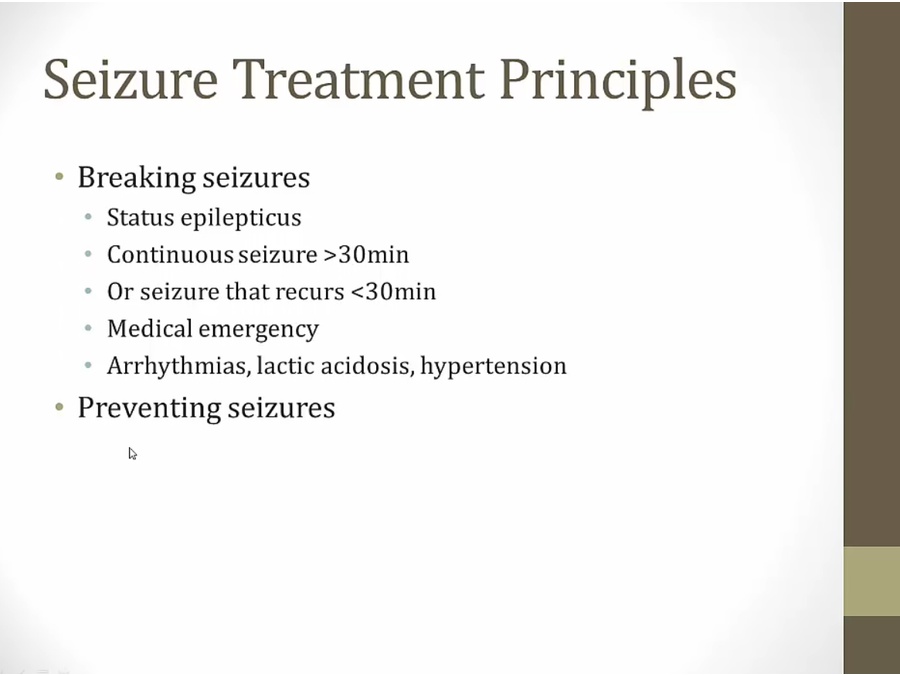
- status epilepticus: emergency, can cause other symptoms
- prevent frequent seizures
Breaking Seizures
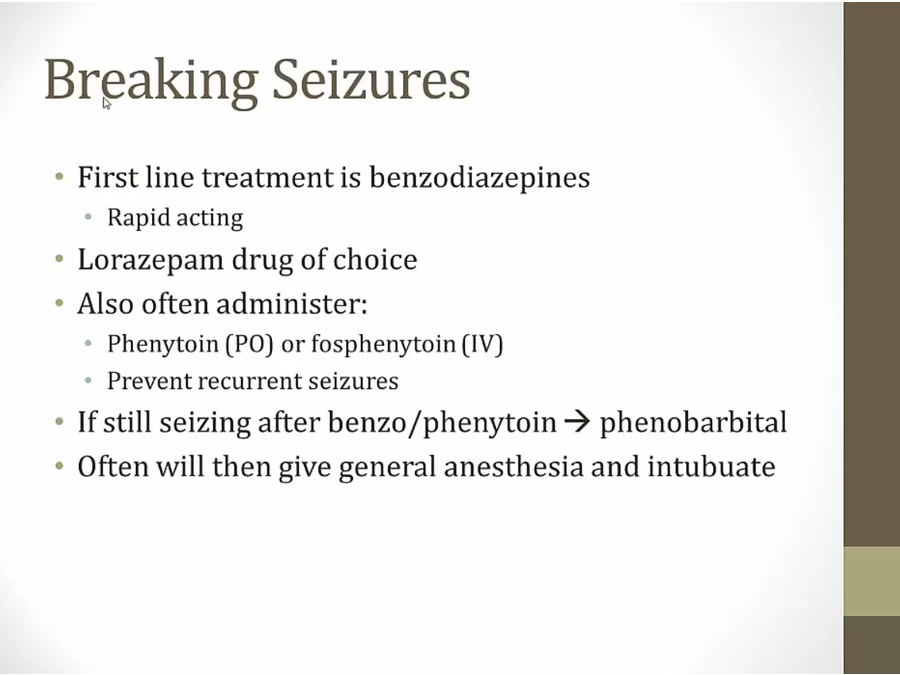
- if lorazepam not working, administer phenytoin, fosphenytoin
- if still not working, phenobarbital
- last line: general anesthesia
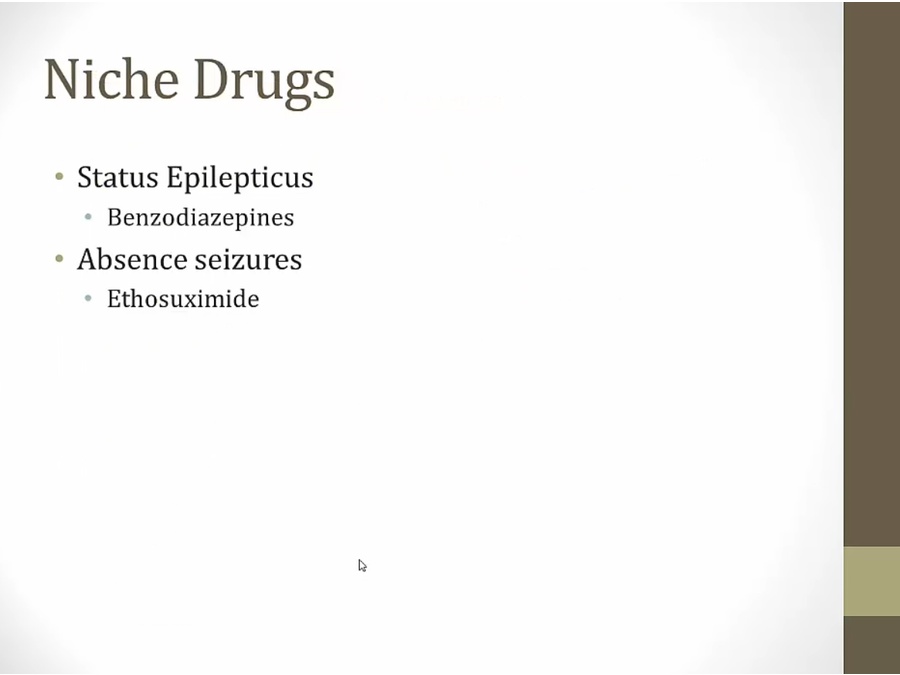
Preventing
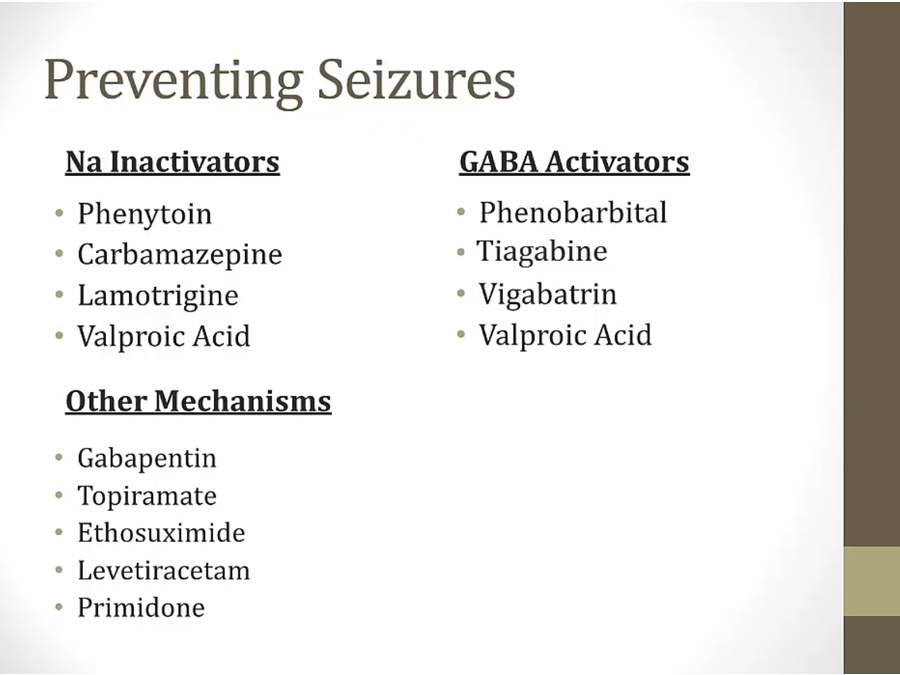
- oral drugs to take chronically
- Na necessary for depolarization of neurons
Carbamazepine
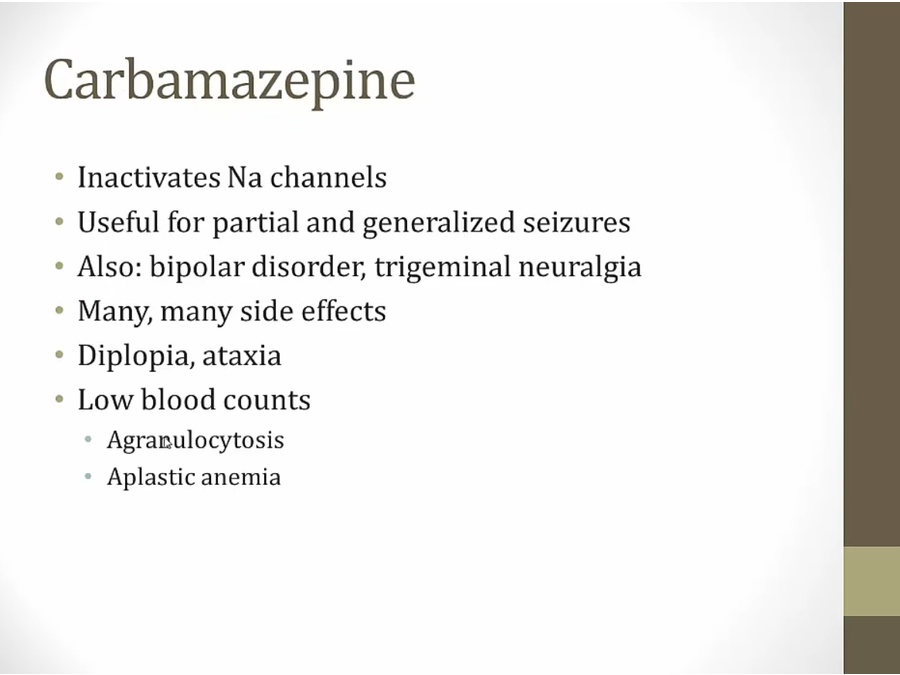
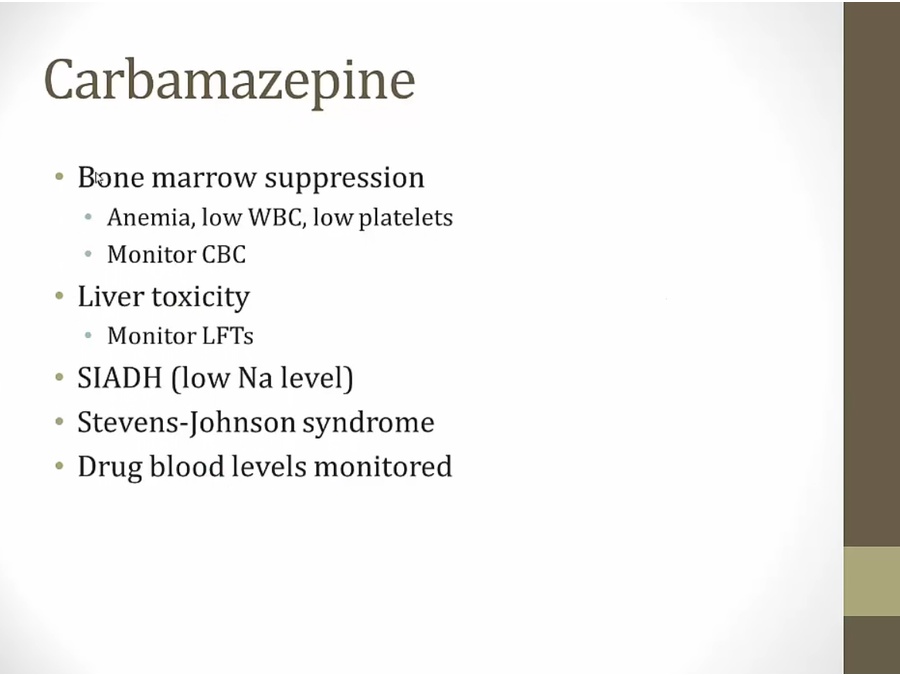
- always monitor drug levels
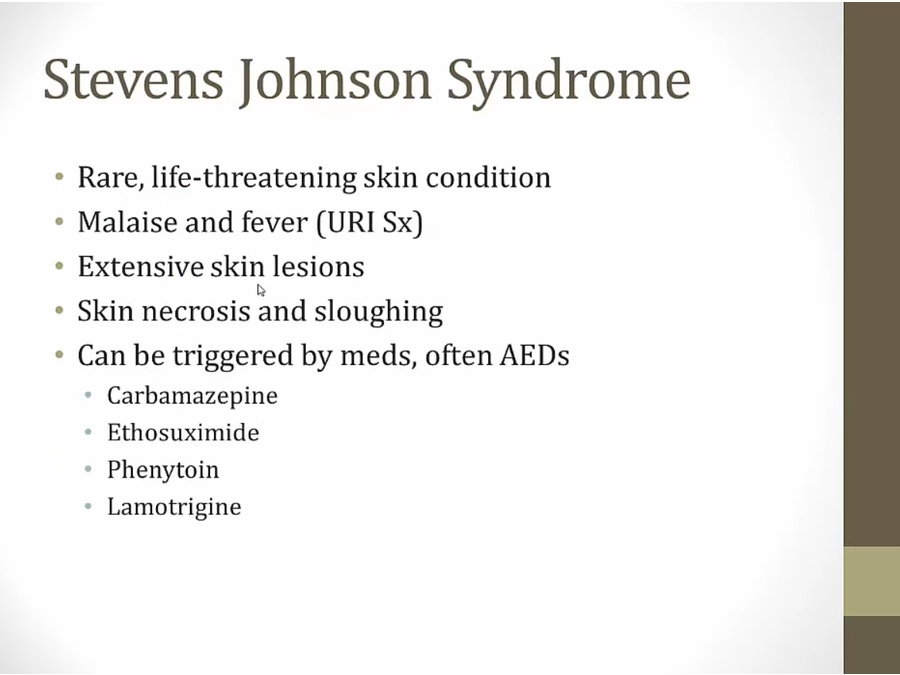
Ethosuximide
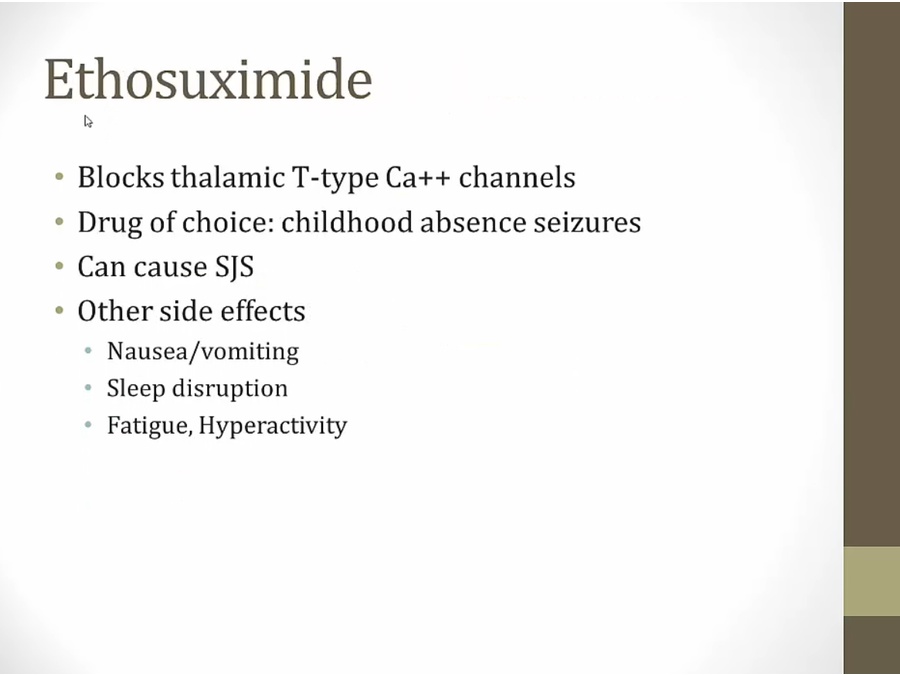
Phenobarbital
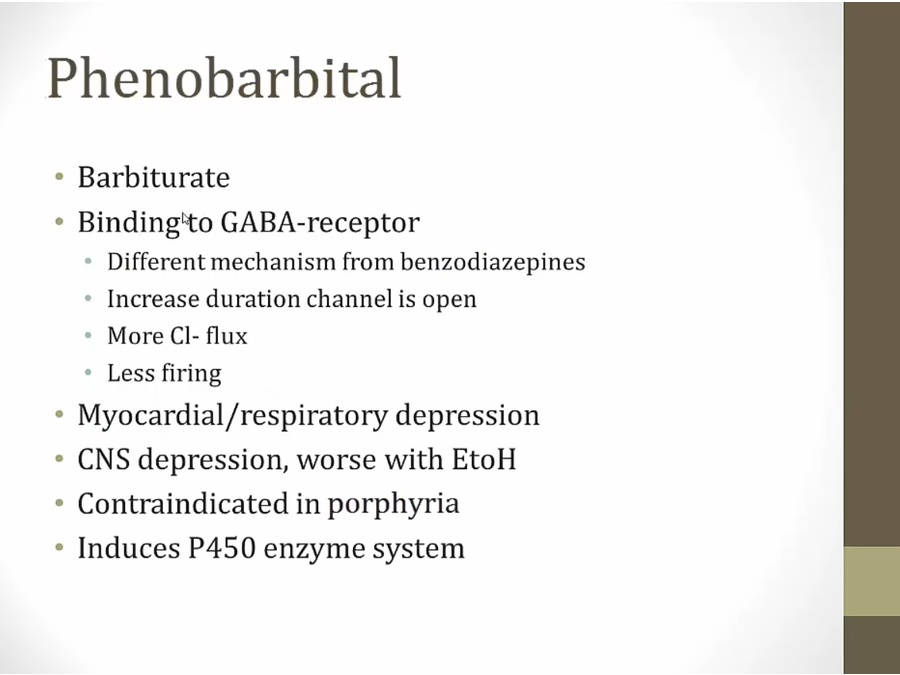
Phenytoin
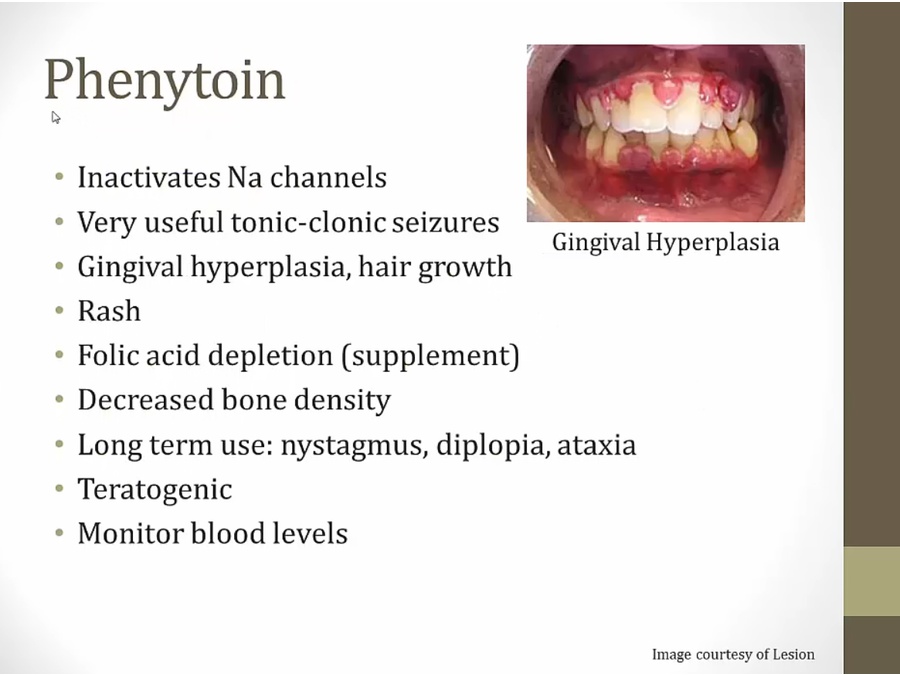
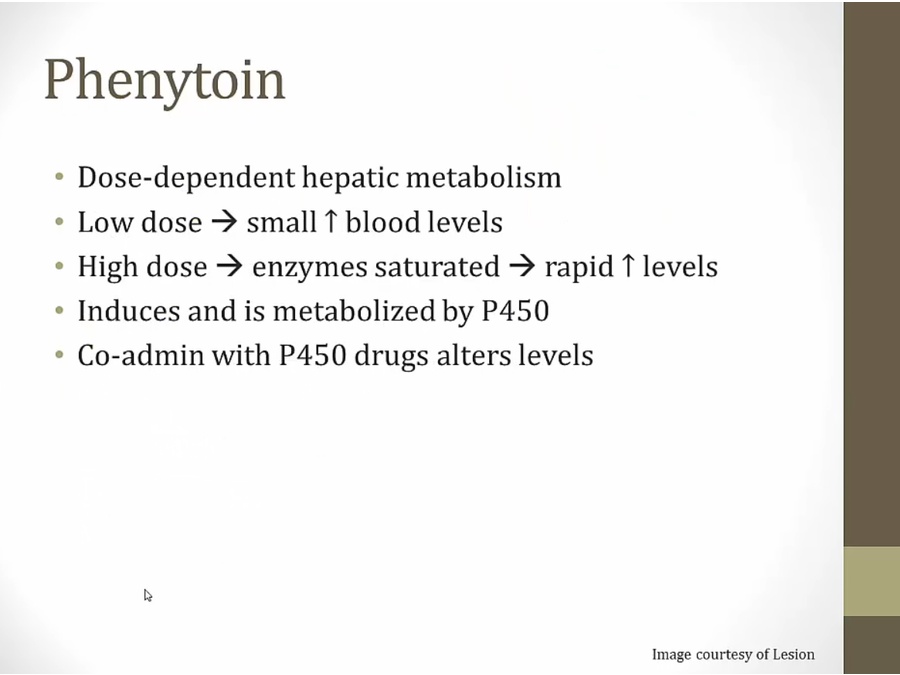
- low dose: small rise in lvls, drug quick to metabolize
- both inducer and metabolized by P450
- 0 order kinetics
Valproic Acid
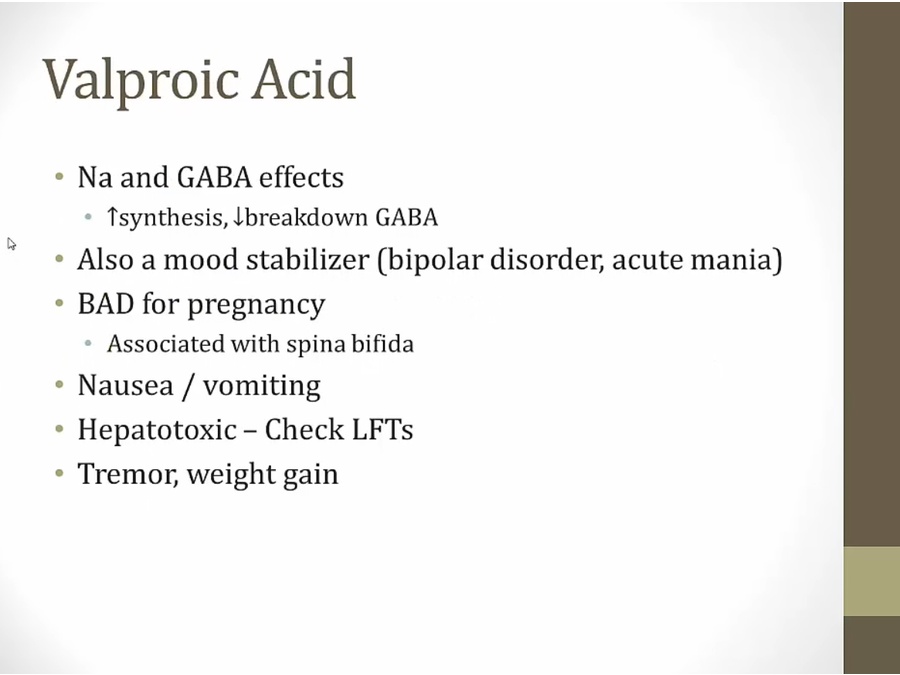
Levetiracetam
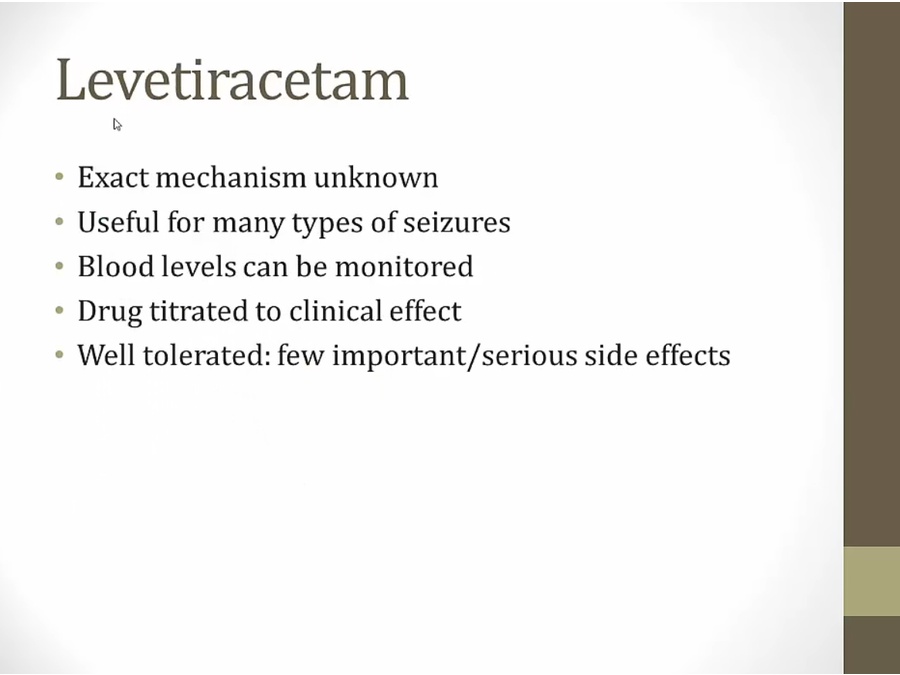
- very effective
- phenytoin and levetiracetam most common
Others
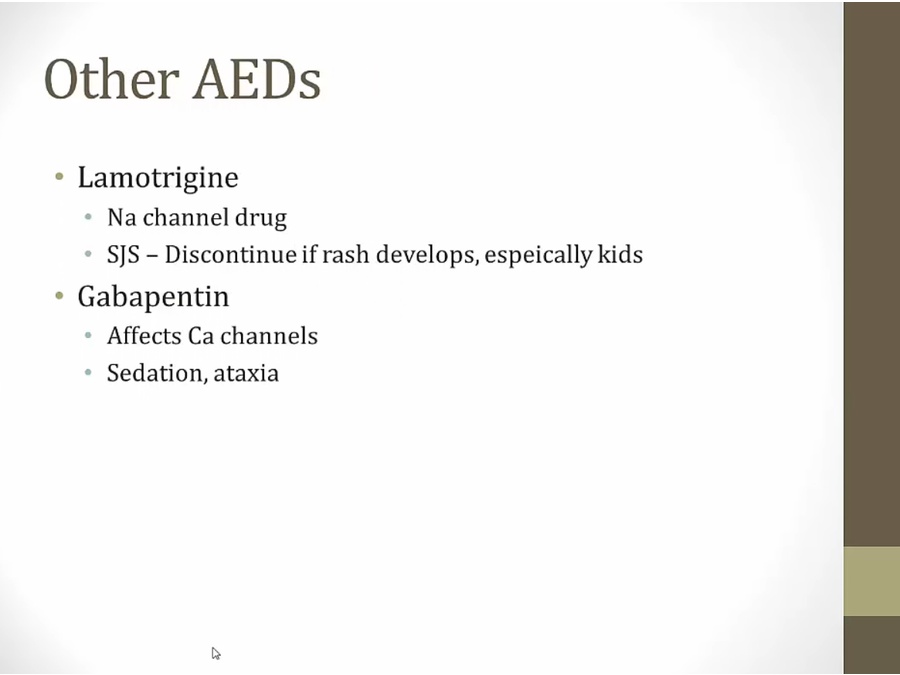
- Gabapentin: first thought to affect GABA, but actually affect Ca
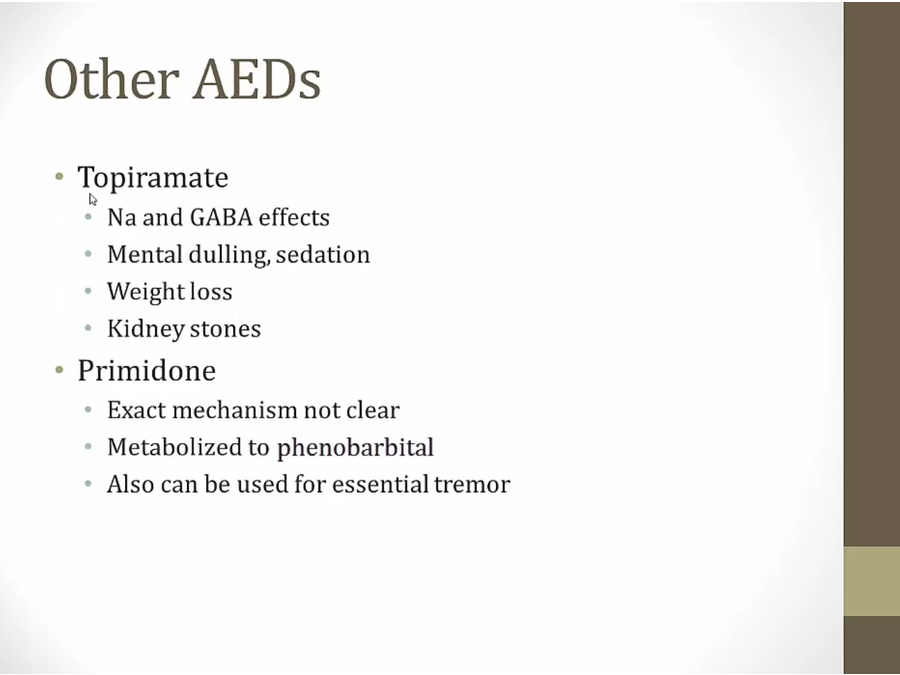
- Topiramate: also migraine drug, causes foggy mind, more Ca in urine = stones
Drug SE
Teratogenicity
Links to this note
